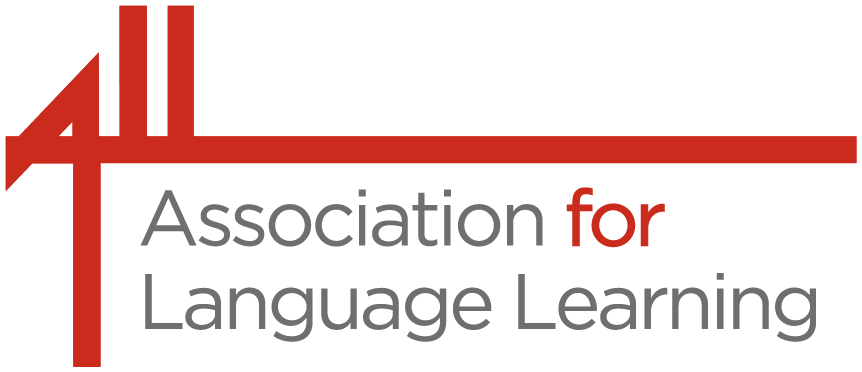Languages Today, issue 1: Spring 2009 – Diana Smith
Has German become too cool for school?
We talk to the Goethe-Institut’s Karl Pfeiffer about how he plans to get Britain’s children speaking German
Of all human institutions, language is one of the most important, and of all human characteristics, the faculty of learning and using language is one of the most fundamental,” says Anthony Fox, in his book The Structure of German.
However, modern languages were dropped as a compulsory subject for 14-16-year olds in the UK in 2002. Perhaps because of this, last year’s GCSE results reflected a fall in the number of teenagers choosing to study a modern language: there was a small reduction in students taking GCSE Spanish compared to last year; candidates studying French fell by 13.2 per cent; while those opting for German fell by a worrying 14.2 per cent.
Is such a downturn a direct result of students’ perception that language exams (especially German) are comparatively tough in today’s competitive academic arena, or is there still scope to encourage renewed interest in learning languages, particularly German?
From 2010, the study of a modern foreign language will be a compulsory part of the national curriculum for children aged from seven to 14 (although this doesn’t extend to compulsory choice at GCSE level). French remains the predominant language taught in primary schools, but as Lord Dearing’s 2007 Languages Review encouragingly states, it is important that we strive to widen the range of languages on offer to all Key Stages – including German.
The Goethe-Institut, the ‘cultural institute of the Federal Republic of Germany, aims to help schools achieve this. Ideas for action include: joint curriculum projects (grants are available for schools to work on a collaborative project with a school in Germany); teachers’ professional development (staff can apply to spend one-two weeks at a school in Germany); immersion courses (intensive, one-to-two week language courses for groups of students) and student fellowships (where students aged 16-18 are assigned a mentor teacher at a German school and hosted by a family for two weeks). Collaboratively, Germany, perhaps more than any other European country, awards a generous number of scholarships and other methods of support to foreign students wanting to study German. It also has a wide range of exchange programs on offer for both school and university students.
In promoting knowledge of the German language and culture abroad the Goethe-Institut acts as a service provider for everyone taking an active interest in the German language in Britain. As well as offering high-quality German courses at all levels and providing valuable support and resources for those teaching German, the institute is itself particularly focused on introducing German to primary schools.
Karl Pfeiffer, Director of Educational Links at the Institut says: “The UK government has made languages for primary schools a priority, and Goethe is very supportive of that. Learning a foreign language at a young age is such a great opportunity for children. They have no problems with grammar or pronunciation because they simply hear and repeat. They learn in such a fun, child-oriented way – via songs, pictures and stories – and remain unhindered by the written word. If I were to become a language teacher I think I’d choose primary over secondary.”
Does this mean that the children are more likely to continue learning German at a more senior level – perhaps at GCSE? “Hopefully, yes”, says Karl, “but that isn’t necessarily the point. The initial enjoyment is the key – it doesn’t matter if they don’t do German at GCSE. They will probably revisit it at some stage. Even if they choose to move on to another foreign language, the basic skills they have learnt won’t be wasted. We believe that the number of students taking GCSE languages in general will increase after the primary school initiative, and I think German will profit from that. We are trying to take the perspective of young people and teach them in a context that they really like. They need to feel that the language and learning it is somehow relevant to them.”
Learning in context is the philosophy behind the particularly successful Goethe enterprise, ‘Double Club: German’. This football/German club is jointly managed by Arsenal FC, the Goethe-Institut London and UK-German Connection, and is available as a module for primary or secondary-level students. “Double Club is amazing,” enthuses Karl. “It started with a German intern working at Arsenal FC who suggested that the club extend its outreach programme to include German as well as French. Arsenal takes its social responsibility very seriously, and we decided to invest to take the programme into schools. Thanks, in part, to the 2006 World Cup it was very well received, and now Double Club has become part of a much bigger EU multilingualism project. I think its success lies in providing an exciting environment in which to learn. And it’s not just aimed at boys – 50 per cent of Double Club kids are girls!”
Similarly, the Institute’s ‘popKultur’ project brings beats, riffs and sounds into the lesson and enables young people to learn German with music. As Karl explains, “Teachers were asking us for samples of German music. I think we have changed our attitude to lyrics and song content in Germany, and the music has become much more light-hearted and poppy. We set up the website so that students could hear samples, watch videos and get help with the lyrics. The feedback was tremendous and we are running regular competitions to win a trip to Germany to see a band”.
Does Karl believe that there has been a cultural shift away from German and Germany? “No. I’d have thought there had been increased interest in Germany and German from young people since the World Cup. Plus, in the last few years, the success of the Christmas markets has attracted loads of people to Germany and a lot of schools come over. The older children think Berlin is cool.
“It’s so easy to travel to Germany, and so cheap. It is a country that definitely should be discovered. There’s always space, you can always get a hotel, and people are surprised at how warm our summers can be. Internal travel is very easy and it’s a safe country to travel in. Put it this way, whoever comes over always comes back.”
Online resources
- Goethe Institute: www.goethe.de
- Association for Modern German Studies (AMGS): www.amgs.org.uk
- BBC online resource for teachers and students: www.bbc.co.uk/languages/german
- UK-German Connection for advice, resources andopportunities: www.ukgermanconnection.org
Language notes
As anyone learning a language will concede, language and culture are entwined, and, as Karl says, “German is as good a language as any other” and its culture as rich as any of its counterparts.
Knowing when it is appropriate to say ‘Auf Wiedersehen’ is just as important as knowing how to say it. German remains rooted in formality and employs two usages of the word ‘you’ – the formal ‘Sie’ and informal ‘du’. Business colleagues will commonly continue to address each other as ‘Sie’ after years of working together. German is also the only language in the world that capitalises every noun – not necessarily a problem for learners (it’s easy to spot a Noun in a Sentence!).
German is spoken in the heart of Europe, so it can’t avoid being influenced culturally from all sides, most evidently by Latin. In 1822, Grimm’s (of the Brothers Grimm) Law set out the sound shifts between languages – i.e. what began with a ‘p’ in Latin or Greek starts with an ‘f’ or ‘v’ in Germanic languages. Understanding such phonic equivalents is a very useful tool for recognising cognates and expanding vocabulary – a distinct advantage that not all languages offer.
Five German facts
- German is the second most commonly used scientific language
- German is spoken by 100 million people in Europe (a quarter of all Europeans) as their first language
- One in 10 books is published in German
- German-speaking tourists are the world’s biggest spenders when on holiday
- It is an official language in Austria, Belgium, the Bolzano-Bozen province of Italy, Germany, Liechtenstein, Luxembourg and Switzerland

